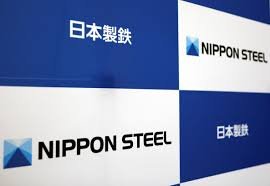Support for the Nippon US Steel Bid valued at $14.9 billion has been expressed by former U.S. President Donald Trump, yet important details about the deal’s execution and implications remain unclear. Investors responded to the announcement with restrained enthusiasm, as uncertainties lingered over the transaction’s true scope and financial burden on the Japanese steelmaker.
Nippon US Steel Bid Gains Strategic Political Approval
The acquisition bid by Nippon Steel for U.S. Steel was endorsed by Trump in a post made on his Truth Social platform on Friday. It was stated by Trump that the “planned partnership” between the Japanese and American firms would result in the creation of over 70,000 jobs and generate $14 billion for the U.S. economy. However, the nature of this partnership and how these figures were derived were not elaborated upon.
Despite Trump’s vocal support, the statement lacked clarity on whether new investments, facilities, or manufacturing expansions would be introduced. As a result, analysts and stakeholders were left to speculate on the operational changes that might follow if the acquisition receives regulatory approval.
Investor Reaction Remains Subdued
Muted gains were observed in Nippon Steel’s shares on Monday, signaling investor caution in response to the developments. Concerns were raised regarding the cost of integration, regulatory hurdles, and political resistance that may be encountered, particularly from American lawmakers and labor unions.
Nippon Steel, which is Japan’s largest steelmaker and one of the world’s top producers, had its strategic intent questioned. While the acquisition of a major U.S. steel manufacturer would provide valuable foothold in the North American market, it was noted that the price tag might be considered steep by market observers. The lack of detailed financial projections and potential restructuring plans added to the market’s skepticism.
Economic Impact Still Unclear
Claims made about job creation and economic benefits have been viewed with suspicion, given that concrete plans for employment expansion were not disclosed. It was not clarified whether the 70,000 jobs would be newly created roles, existing jobs safeguarded, or indirect employment supported through downstream industries.
Industry analysts have emphasized that while political endorsement can ease nationalistic concerns, especially in sectors deemed strategically important like steel, financial due diligence and regulatory scrutiny will play a more decisive role in the fate of the deal. The Biden administration has yet to provide official comment, and reviews from the Committee on Foreign Investment in the United States (CFIUS) may be expected.
Political Ramifications in an Election Year
The endorsement by Trump was seen as a strategic political move, likely aimed at solidifying support from manufacturing regions ahead of the 2024 U.S. presidential election. By framing the deal as beneficial to the U.S. economy, Trump positioned himself as a pro-industry, pro-jobs candidate. However, this stance contrasted with opposition voiced earlier in the year by political figures who questioned whether critical American industries should be sold to foreign buyers.
It was noted that political pressures could escalate in the coming months, especially if the deal is portrayed as compromising U.S. economic or national security interests. Trade unions and steelworker organizations are expected to weigh in more vocally, particularly if concerns emerge regarding plant closures or layoffs.
Japanese Perspective on the Acquisition
From Japan’s viewpoint, Nippon Steel’s push to acquire U.S. Steel reflects a broader strategy to secure growth beyond domestic borders, where steel demand has stagnated. Access to U.S. markets, technological assets, and supply chains would provide strategic benefits. Yet, concerns over how much capital will be required to maintain and upgrade U.S. Steel’s aging infrastructure are yet to be addressed by Nippon Steel’s leadership.
Further ambiguity was added by the lack of public communication from Nippon Steel about how the deal aligns with its long-term business model and ESG commitments. Analysts in Tokyo have called for greater transparency on expected returns, synergy potential, and debt management strategies.
Conclusion: Endorsement Leaves More Questions than Answers
Although Trump’s support has brought political attention to Nippon Steel’s $14.9 billion acquisition bid for U.S. Steel, significant gaps remain in the public understanding of the deal. Investors have responded with caution, and questions have been raised over job creation figures, economic contributions, and regulatory outcomes.
Until greater clarity is provided by both companies and U.S. authorities, the deal will continue to face scrutiny. Its ultimate success will depend not only on political endorsements but also on transparent communication, sound financial planning, and effective regulatory navigation.


